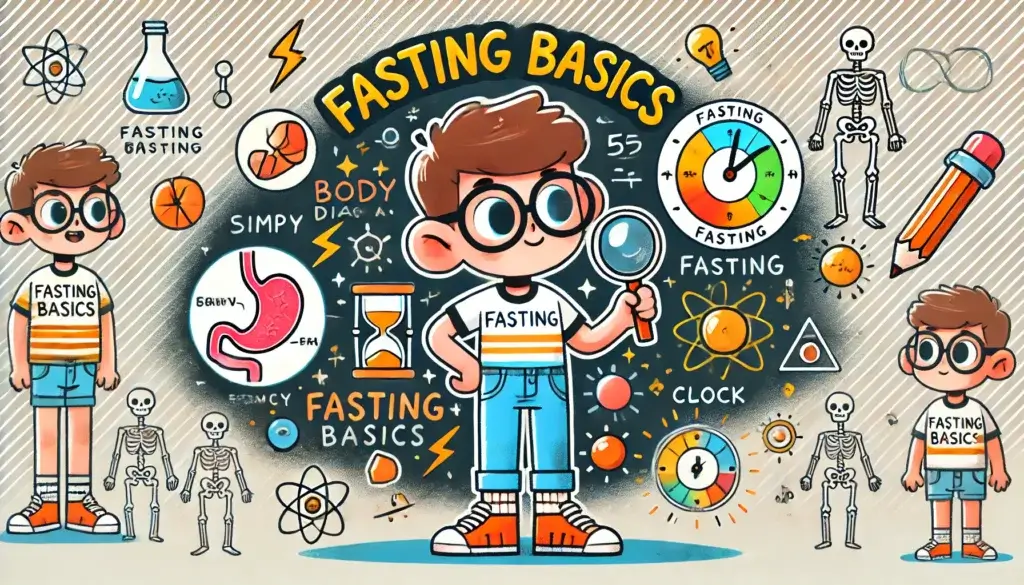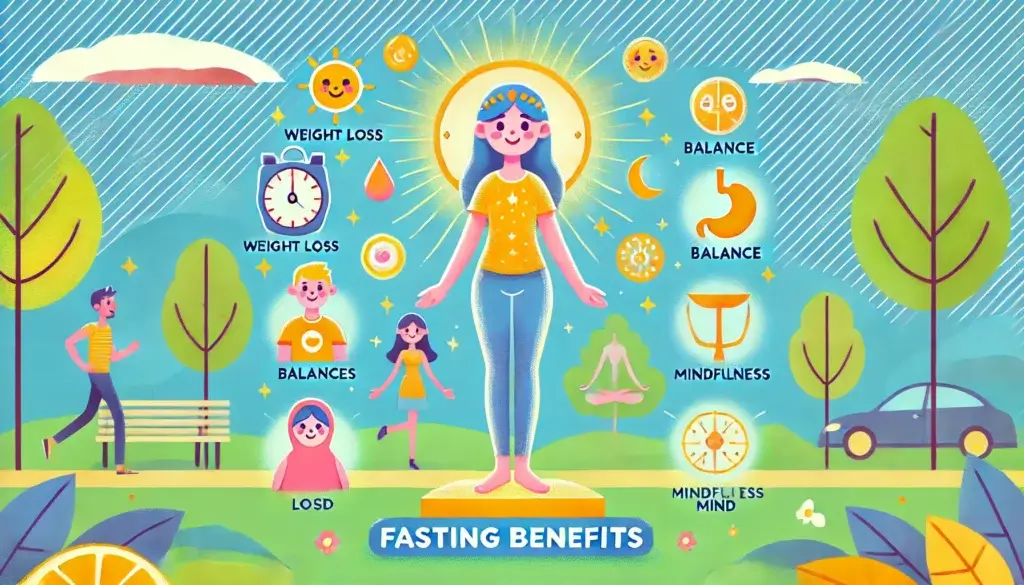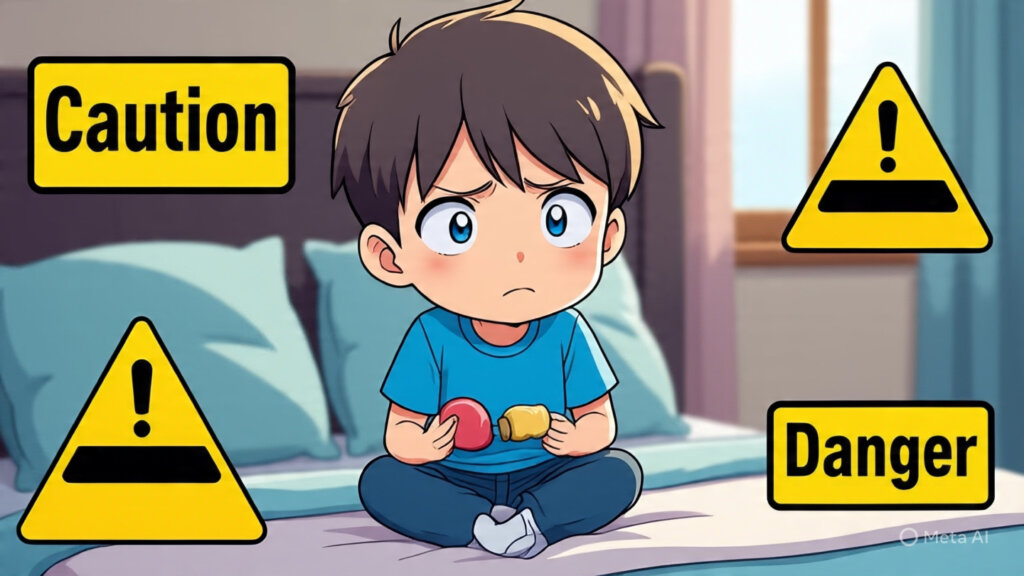Hey friends, have you ever thought about how skipping meals might change how stressed you feel? Fasting and cortisol impact is something many people are curious about, especially with the rise of intermittent fasting for health and fitness. Cortisol, known as the stress hormone, plays a big role when you fast, and it can bring both good and tricky effects. Today, we’ll explore fasting and cortisol impact, focusing on its benefits and caution. Let’s dive in and figure this out together!
The Basics You Need to Know
fasting and cortisol impact starts when you stop eating for a while. Your body sees this as a signal to switch gears, and cortisol jumps in to help. Made by your adrenal glands, cortisol rises during fasting to release stored energy from fats and sugars, keeping you going without food. A study found that cortisol levels go up within the first few hours of fasting, helping maintain blood sugar levels. It’s like your body’s way of saying, “Don’t worry, I’ve got energy for you!”
For short fasts, like 12-16 hours, this cortisol boost can be a good thing. It helps your body burn fat for fuel, which is great if you’re aiming for weight loss. Research shows that intermittent fasting with moderate cortisol increases can improve how your body switches between burning carbs and fats, making it more efficient. So, fasting and cortisol impact on weight loss could mean losing those extra pounds without feeling starved.
But there’s a flip side. If fasting goes on too long or feels stressful, cortisol can stay high, which might break down muscle instead of fat. A review pointed out that too much fasting can lead to higher cortisol, sometimes causing overeating later. The key with fasting and cortisol impact is balance—doing it right with enough rest and low stress keeps it helpful. Studies on humans show that morning cortisol after fasting can differ, but it often improves insulin sensitivity when timed well.
Everyone’s body is different, so things like age, exercise, and health affect how fasting and cortisol impact you. If you’re new to this, try starting with shorter fasts, like eating within an 8-hour window, to ease into it. This way, you can enjoy the good sides without pushing your body too hard.

How Cortisol Works in Fasting
When you fast, cortisol rises fast to keep energy flowing. A study with healthy folks showed a 20-30% jump after 12 hours, helping burn fat. This is a neat part of fasting and cortisol impact, giving you a little energy lift. Just watch out if it feels like too much energy—it might mean a break is needed.
Boosting Metabolism
Fasting and cortisol impact on weight loss includes better fat burning. Research links short fasts to improved insulin use, cutting stored fat. It’s like a natural way to tune up your body. Pair it with light walks for extra help.
Fasting and cortisol – Amazing Benefits
fasting and cortisol impact can do wonders when you get it right. One big plus is weight loss. The cortisol rise during fasting taps into fat stores, helping you shed pounds without harsh diets. A study on people doing intermittent fasting saw a 3-8% drop in body weight over 3-12 months, thanks to cortisol’s role in energy use.
It also boosts stress handling. Short fasts can smooth out cortisol patterns, leading to happier moods and less worry. Research found that eating within a time window lowered evening cortisol, improving sleep and calm feelings. This fasting and cortisol impact makes daily life feel easier and more balanced.
Better sugar control is another win. The cortisol rise can improve how your body manages glucose, lowering diabetes risk. A trial with people who have type 2 diabetes showed better blood sugar after fasting, thanks to cortisol’s help. Plus, fasting triggers autophagy, where cells tidy up, and cortisol supports this for a youthful feel.
Your brain gets a lift too—moderate cortisol during fasts sharpens focus. Studies tie intermittent fasting to better thinking skills through cortisol balance. Heart health perks up too, with less inflammation from well-managed cortisol.
For ladies, fasting and cortisol impact on weight loss can work gently if timed around low-stress days. These benefits make fasting a fun health adventure.
Weight Loss Magic
Fasting and cortisol impact on weight loss means fat burning from a cortisol boost. Trials show 4-7% fat loss in 8 weeks. It’s great for trimming down. Check your progress with a scale.

Happier Mind and Body
Lower evening cortisol from fasting cuts stress by 25% in 4 weeks, per a study. Feel more cheerful and awake. Try deep breathing to boost this.
Fasting and cortisol – Things to Watch Out For
fasting and cortisol impact isn’t all rosy—there are cautions to keep in mind. If fasting stretches too long, high cortisol can start breaking down muscle for energy instead of fat. A study warned that too much restriction raises cortisol, sometimes leading to eating more later. For fasting and cortisol impact on weight loss, this could mean gaining weight back if not handled well.
Sleep troubles are a risk too—cortisol spikes can mess up your sleep cycle. Research on night workers showed fasting worsened rest if cortisol stayed high. Women might notice hormonal shifts, like irregular periods, from too much cortisol.
Adrenal fatigue is another worry—constant high cortisol can tire out your adrenal glands. A review mentioned signs like feeling wiped out or craving snacks in people who over-fasted. Missing nutrients is possible if fasting isn’t planned, leaving you short on vitamins.
For those with diabetes, fasting and cortisol impact on weight loss needs a doctor’s okay, as cortisol affects blood sugar. Early side effects like headaches or dizziness are common too. Studies show 10-20% of people drop fasting due to these issues.
Pay attention to your body—if things feel off, take a break. Drinking water and adding electrolytes can ease some risks.
Muscle Loss Risk
Long fasts with high cortisol break down muscle. Research notes 1-2% loss weekly if protein is low. Balance with rest to avoid this.
Hormonal Shifts
Women might see period changes from cortisol spikes. A study tied fasting to 15% more estrogen swings. Talk to a pro if this happens.
Cortisol and Weight Gain : 5 Ways to Manage It Effectively
Tips for Doing It Right
To enjoy fasting and cortisol impact safely, start small. Try a 12-hour fast, like from dinner to breakfast, to let cortisol adjust gently. Check your levels with a morning test if you can—aim for 10-20 mcg/dL. A study suggests this gradual start prevents cortisol from spiking too much.
Eat healthy meals during your eating time—load up on veggies, protein, and good fats to keep cortisol steady. Skip coffee, as it can make cortisol jump. Light exercise like walking works better than hard workouts during fasts, which can raise cortisol too high. For fasting and cortisol impact on weight loss, add yoga to ease stress.
Get 7-9 hours of sleep to drop cortisol by 20%. Try ashwagandha, a natural helper, to balance it, as research supports. Drink plenty of water with electrolytes to avoid dehydration, which can worsen symptoms.
Watch your mood and energy—if they dip, shorten your fast. Women should skip fasting during periods. Check with a doctor, especially if you have health issues. These tips make fasting and cortisol impact a safe, happy choice.

Easy Start Steps
Begin with short fasts to avoid cortisol overload. Studies show slow pacing works best.
Increase time gradually.
Keeping Stress Low
Yoga cuts cortisol by 15% during fasts, per a study. Pair it with fasting and cortisol impact for calm days. Breathe deeply for a few minutes.
What is fasting and cortisol impact?
Fasting raises cortisol for energy, aiding fat burn but risking stress if overdone.
Does fasting affect cortisol levels?
Yes, it increases cortisol short-term; long-term can cause issues.
What are benefits of fasting and cortisol impact on weight loss?
It helps burn fat for energy, supporting weight loss.
What risks come with fasting and cortisol impact?
Muscle loss, sleep problems, and anxiety are possible.
How to manage fasting and cortisol impact safely?
Start slow, stay hydrated, and reduce stress.
Disclaimer: We are not a doctor, please consult to your doctor if you have any medical condition.
